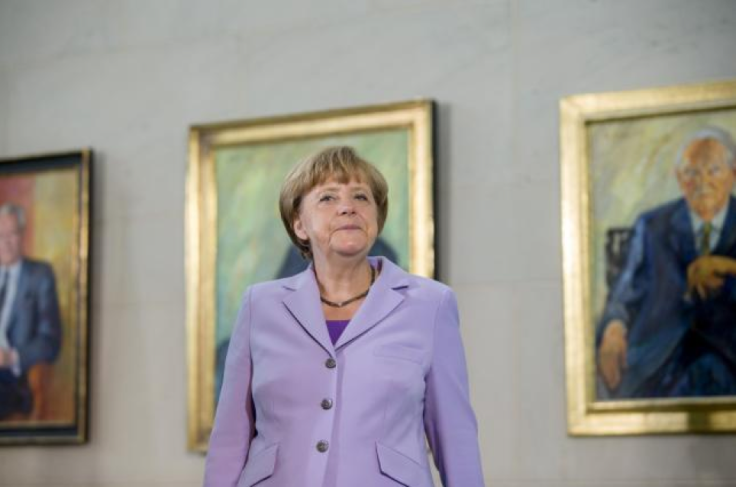German Chancellor Angela Merkel Has Chance Of Absolute Majority, Poll Shows

BERLIN -- German Chancellor Angela Merkel's leadership during the Greece crisis has given her conservatives a chance of winning an absolute majority in the event an election were held next week, an opinion poll showed Sunday. The results of the poll came a day after Der Spiegel newsmagazine said in an unsourced report that Merkel had decided to run for a fourth term and had started planning her 2017 re-election campaign.
The chancellor has governed Germany since 2005 and now rules in coalition with the Social Democratic Party (SPD).
The Emnid poll for weekly newspaper Bild am Sonntag put support for Merkel's Christian Democratic Union (CDU) and its sister party, the Bavarian Christian Social Union (CSU), at 43 percent. Not since Konrad Adenauer's third term as chancellor ended in 1961 has the CDU/CSU ruled with an absolute majority.
The survey of 1,860 people showed that for the first time since June 2005 support for the CDU/CSU was equal to that of all other parties that would surpass the 5-percent hurdle required to win seats in the Bundestag lower house of parliament. Such a result would give Merkel's conservatives a chance of winning an absolute majority in the event an election were held next week. The change came as support for the far-left party fell by 1 percentage point.
An absolute majority would give Merkel's conservatives the chance to govern without compromising on issues such as pension reform and the minimum wage, as they have done with the SPD.
Merkel's handling of the Greece crisis, in which she worked tirelessly as Berlin negotiated the blueprint of a deal with Athens, secured her support. "During the Greece crisis, Merkel showed herself to the German people as a politician who can be relied on in difficult situations," Torsten Schneider-Haas of Emnid told Bild am Sonntag.
Merkel also shared power with the SPD in her first term as chancellor. In her second term, she shared power with the pro-business Free Democratic Party (FDP).
There are no term limits in Germany, and the last CDU chancellor, Helmut Kohl, served for 16 years before losing his bid for a fifth term in 1998 to Gerhard Schroeder of the SPD. Neither were as popular among voters as Merkel.
(Writing by Paul Carrel; Editing by Raissa Kasolowsky)
© Copyright Thomson Reuters 2024. All rights reserved.




















